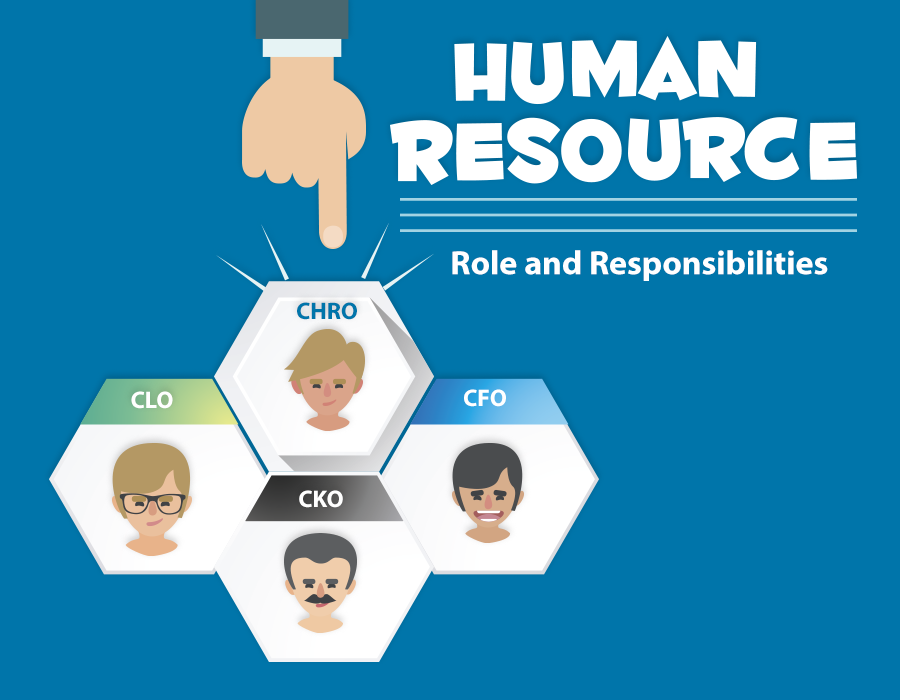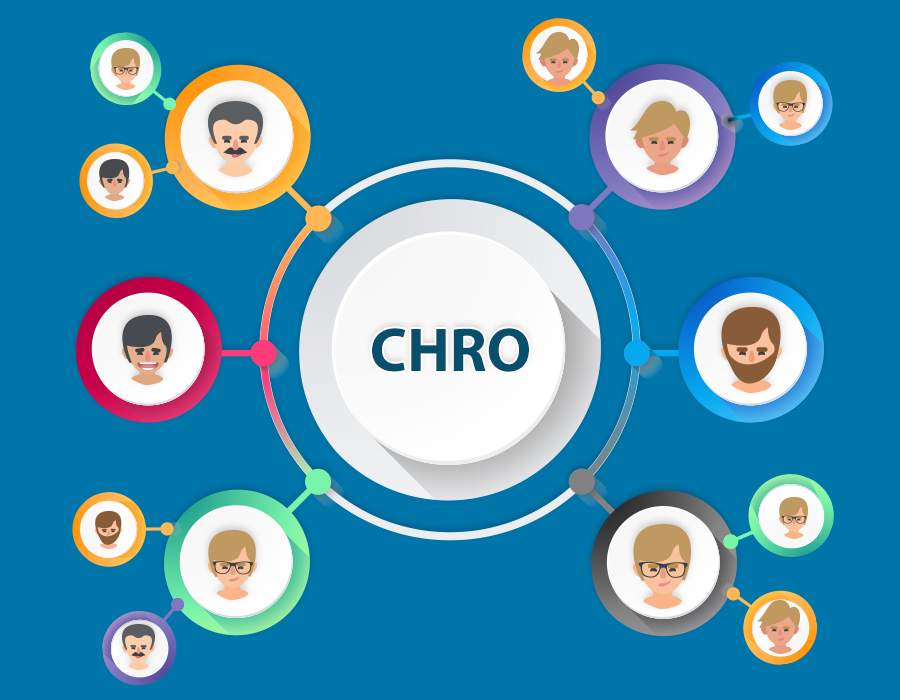The industrial circuit has been fast evolving into something better and more prominent. With an increase in competition and seemingly changing operational methods, a shift in environmental and geographical dimensions, transformed social regulations and increased sustainability, the need to meet the immense industry requirement has given rise to various positions. As complex as these may sound, every job role fits the business landscape perfectly. The transformed management has opened opportunities for exceptional leaders, capable of meeting the demand of the functions.
Human capital has become a valuable part of an organization, and a Chief Human Resource Officer a unique part of it. It is a known fact that people add value to a business, and the CHRO is mostly responsible for finding such esteemed people.
Also Read: The Role of a CMO
Mostly defined as the person who is responsible for all tactical decisions in a company, the Chief Human Resource Officer (CHRO) holds a vital role in the organizational hierarchy. A chief human resource officer is someone who takes a risk. Yes, they take many risks. A CHRO oversees the entire department of human resource management and industrial relations including operations, policies, and practices of an organization. The Chief Human Resource Officer has evolved to meet the human capital needs of an organization and is highly responsible for hiring the right talent.
A chief human resource officer is considered as a top-level management executive in charge of finding an organization’s employees.
The articulating and strategic decisions of a CHRO can lead to a massive change in the organizational climate. Working closely with other top-management recruits, a CHRO can contribute directly to the success of the company.
Though a considerably new job role, a close look at the roles and responsibilities of a CHRO will allow you to understand their influence on a company better.
Role and Responsibilities of Chief Human Resource Officer
Every function performed by a CHRO relates to balancing, designing and leading. The act of balancing requires them to build a sustainable organization. While the top management level is distinct, employees too are their entities. Managing the different aspects of an organization, ensuring that everyone works in sync and promoting a healthy work atmosphere are some of the pivotal functions that a CHRO has to undertake. In short, they micromanage.

A CHRO is also responsible for building a useful HR model in an organization. While implementation is also a big part of their responsibility, they need to maintain an interconnected chain of functions in the company. Due to the efforts put by them, the company operations run smoothly.
Here has been summarized some of the job roles and responsibilities of a CHRO.
- The chief human resource officer’s primary task is to design a strategy that will help acquire appropriate talent for the company.
- Another principal responsibility of a CHRO is to carry out functions such as recruiting, hiring, developing, and retaining employees for the growth of the organization.
- Acquiring talent is one of the critical job roles for a CHRO. They play a key role in succession planning and talent management software in large enterprises.
- From an organization’s software systems to insurance and retirement plans, all are handled by the chief human resource officer.
- Chief human resource officers also engage in employee recognition and wellness programs.
- Other responsibilities of chief human resource manager include employee benefits and employee engagement.
- They also supervise setting employee compensation rates.
- Chief human resource officer also has a significant role in fostering positive employee experience and employee relations. This includes collective bargaining and handling grievances, complaints, and discipline.
The Rise of CHRO
Traditionally chief human resource officer was responsible for the administration of the HR functions, which was considered operational and tactical. However, as organizations struggled to meet the increasing customer demands and rising industry competition, the chief human resource officer was required to evolve himself into a deliberate influencer.

The sudden focus of the companies towards its human resources and the intensity of the focus has influenced the role of CHRO immensely. Every industry, be it manufacturing or IT, has become service-based. In simple terms, it has become customer-centric. So, it comes as no surprise that the job role of CHROs has gained such prominence in recent years.
The chief human resource officer usually hired to counsel the employees, further ensuring them a secured work environment, the top level management officers majorly felt their significance. This has allowed the job profile to stand out.
Many reasons can be cited to support their growth in the business landscape. Some of these are:
- Chief human resource officers are excellent managers and can connect with a diverse workforce.
- They sure can read workplace dynamics pretty well. They respect people and firmly believe they are the bottom line of any organization for it to survive.Chief human resource officers take a stance in maintaining happiness in the work environment. Though surprising, but one of the best skills chief human resource officers is to foresee and diagnose problems arising in the organization.
- Chief human resource officers understand the significance of a happy environment at the workplace as it fosters employee engagement and job satisfaction. They value the well-being of employees and drastically try to understand the minds and hearts of employees. They also value justice, trust, and ethics of employees. They are smart in relating employer needs and expectations to business goals and financial health.
- Chief human resource officers make enough efforts to promote a conducive environment for all employees. They are the role models of a company, and they lead by examples. They strive hard to connect people and treat everyone equally.
- They are also active in social, political, and business trends to educate themselves about future jobs and competencies. Their profound understanding allows them to gain knowledge to hire the right people in their organization. They are the reason behind a strong built capable workplace that helps achieve business goals and objectives. They examine the present and future needs of the organization. They take actionable steps in desperate needs and bridge the talent gap.
- The chief human resource officers also play an analytical role where they monitor, analyses and mainly identifies strategic needs, gaps, and risks. They particularly leverage management tools to achieve overall business goals and objectives. The most prominent role played by Chief human resource officer is that of a leader where they lead long-range strategic planning for people and organizational productivity.
- The chief human resource officer is accountable for ensuring that the business values are communicated and understood by all levels of business organizations. They also provide an organizational design structure, intervene, and mediate conflicts in such a way that is reflective of the business, and that leads to an appropriate resolution.
Also Read: Top B2B Email Subject Line Tactics to Connect with C-levels
Therefore, it is clear that due to the immense significance of the role played by a CHRO, they rose to the prominence that they deserve. Without a CHRO to take care of the organization, there are chances that it might fall.
Possessing the Right Skills
Specific skills, which should be inherent to the chief human resource officers, include communication skills, computer skills, analytical skills, interpersonal and leadership skills. Since they keep track of the latest industry trends and best practices, their performance should be optimal. Chief human resource officers play an active role in marketing trends, industry unions, events, seminars, and workshops. They drive the business agenda and resolve issues through their findings.
In Conclusion
Chief human resource officers are an asset to a company. They function as a strategic advisor and enhance business goals and agendas. They are a vital source of business and management issues.
Let us connect on the comment section. For related articles and blogs, visit our website Inboxceo.




